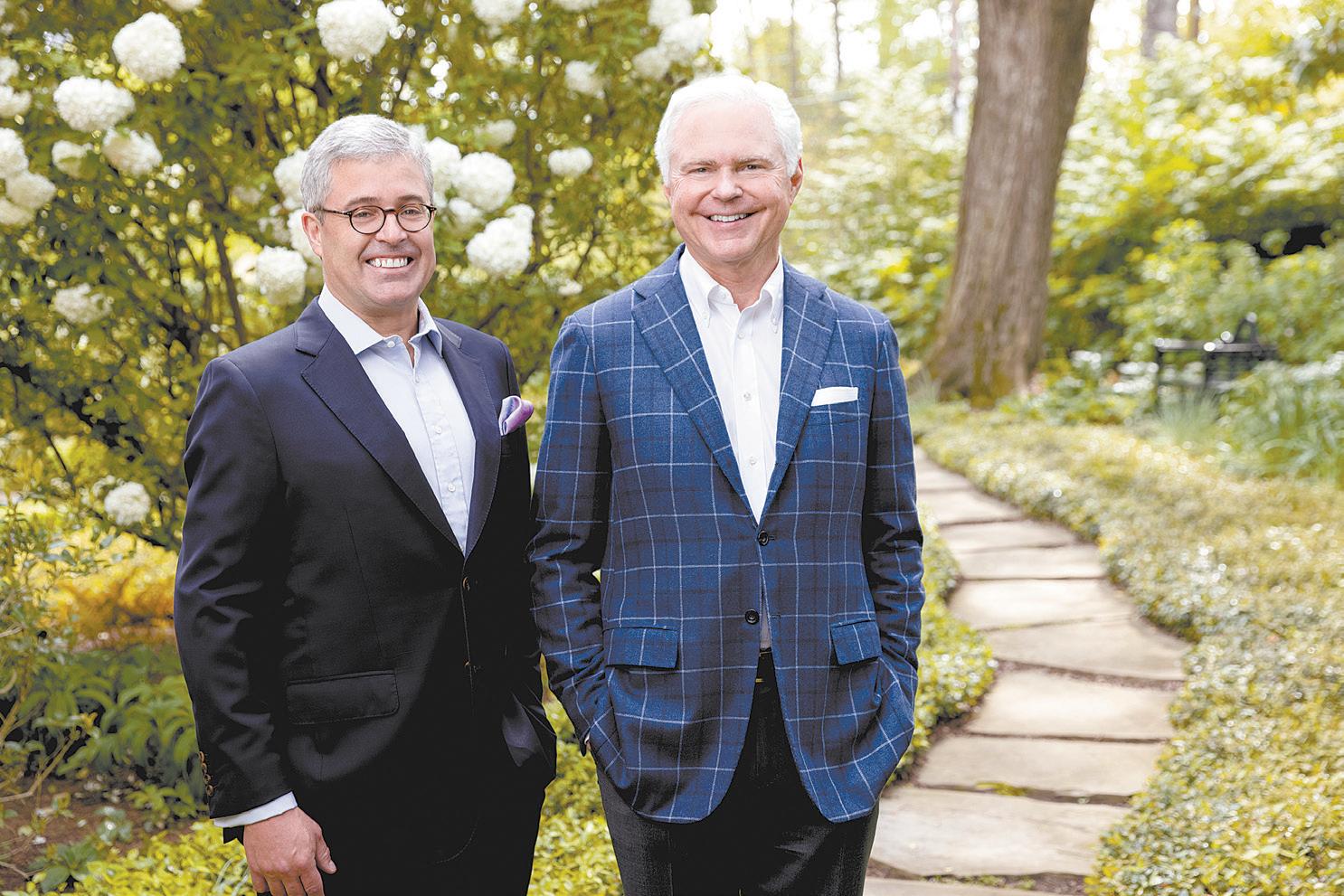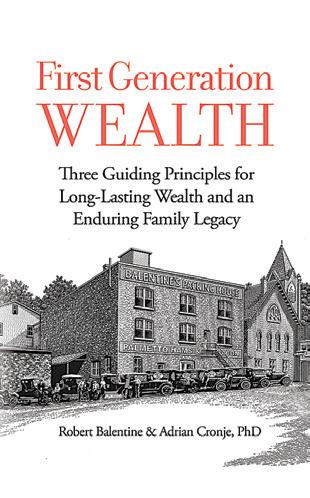
2 minute read
Creating a Legacy
Financial books have a reputation for being dry as dust, but First Generation Wealth: Three Guiding Principles for Long-Lasting Wealth and an Enduring Family Legacy breaks the mold. Along with being reader friendly, the book by Robert Balentine and Adrian Cronje offers practical guidance on creating generational businesses that endure.

Advertisement
“We wrote the book to help wealth creators think through what it takes to build a meaningful legacy and support future generations,” says Balentine, chairman of Buckhead wealth management firm Balentine LLC. The statistics are alarming. Seventy percent of the second generation and 90% of the third squander their inheritance, and the business fails.
“It’s the ‘shirtsleeves to shirtsleeves’ phenomena, a phrase recognized in business circles around the world,” Balentine says. “The first generation is the grinder who works dawn to dusk to ensure the business’ success. The second reaps the rewards and becomes accustomed to wealth. The third only knows the spoils of that wealth and spends it all until there’s nothing left to pass to the fourth.” Balentine knows firsthand. His great-grandfather built Balentine Packing Company in Greenville, South Carolina, and the company was once the largest privately owned meat packer in the Southeast. It continued to thrive under his three sons, but things went awry 60 years later when dozens of family shareholders lived off the company’s cash flow and divided the family. By the time the company reached Balentine’s father, there was nothing left, and it was sold for a fraction of its prior worth. Two years later, it went bankrupt.
Cronje’s family has a similar history. “I grew up in South Africa, and entrepreneurship and family businesses run in my blood,” says Balentines CEO. “My family built two profitable businesses in shipping and farming, so I know the pain points and the blind spots. They are classic examples of the same phenomena.
“Entrepreneurs have to be intentional and keep the lines of communication open to avoid the minefields. We often hear from unhappy founders who are reluctant to let go and delegate responsibility to their children. But if they want them to be good decision makers, they have to give them a chance to fail and learn from their mistakes.”
The book Balentine and Cronje wrote together offers practical tips to help legacy businesses endure. “First, money doesn’t define who you are,” Balentine says. “Don’t mistake wealth for legacy. Second, distinguish between your family business and the business of family. How are you managing it? Third, see the world through the next generation’s eyes and model gratitude. Teach by example by donating generously to good causes.”
Both men are eminently qualified to write this book. Balentine has 40 years of experience advising families on wealth and legacies. He and his father founded Balentine & Company that grew to become the largest independently owned wealth management firm in the South. He’s received numerous awards as a top wealth manager. He also founded Southern Highlands Reserve, a nonprofit arboretum and research center in North Carolina where a 78-foot red spruce was selected as the 2022 Capital Christmas Tree.
Cronje, a founding partner at Balentine, studied economics at England’s Cambridge University, considered the birthplace of macroeconomic studies. He was working at Schroders Wealth Management in London before moving to Atlanta where he became senior vice president and chief investment strategist at Wilmington Trust prior to co-founding Balentine. He’s a chartered financial analyst and member of Vistage Worldwide. He also serves on the board of The Journal of Wealth Management and is a frequent speaker and guest lecturer at local universities. n













